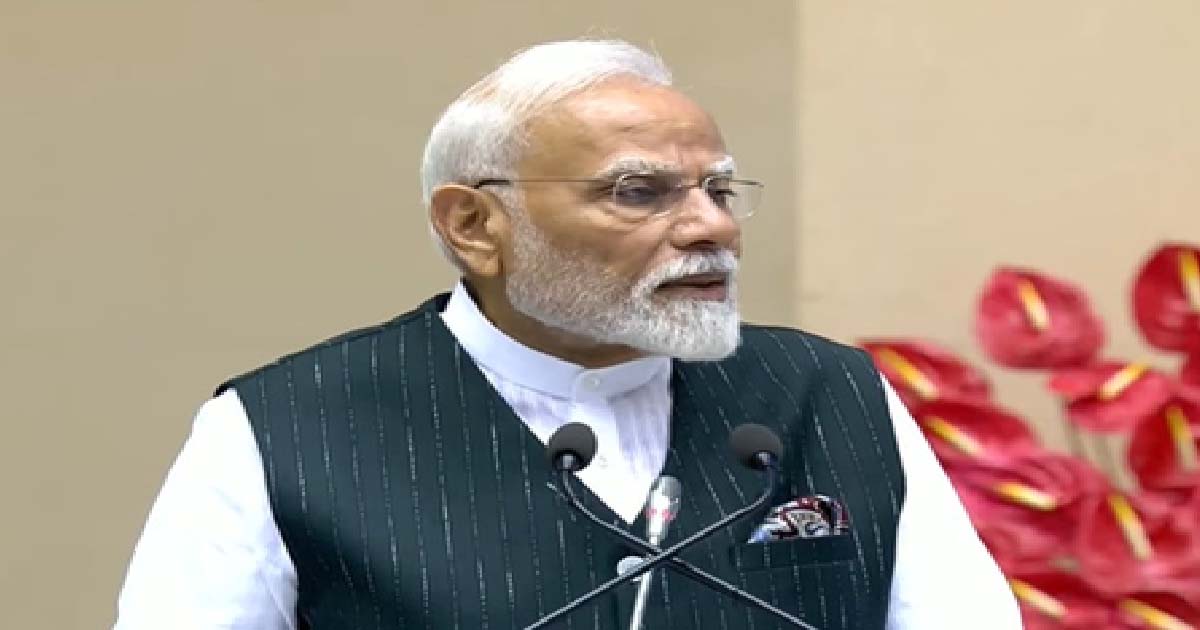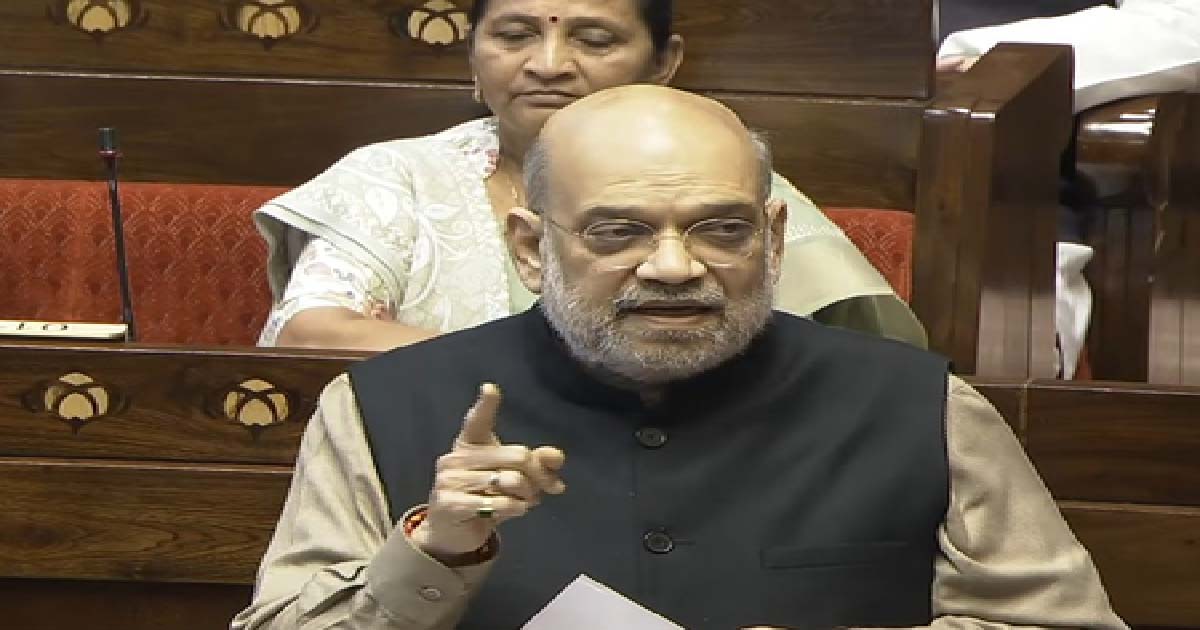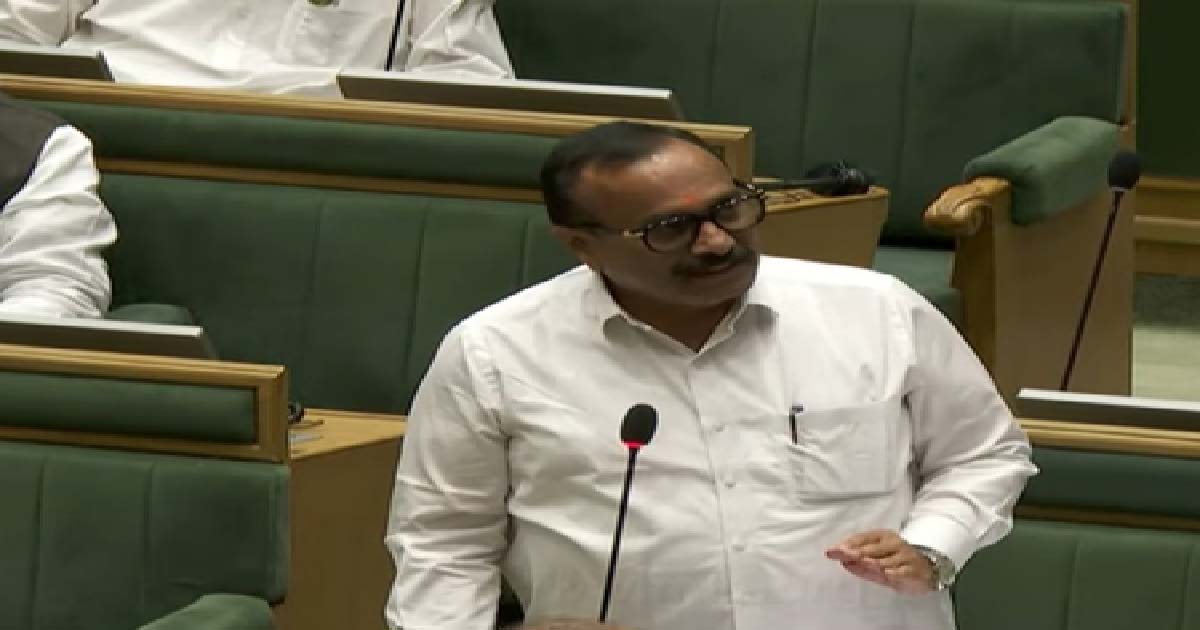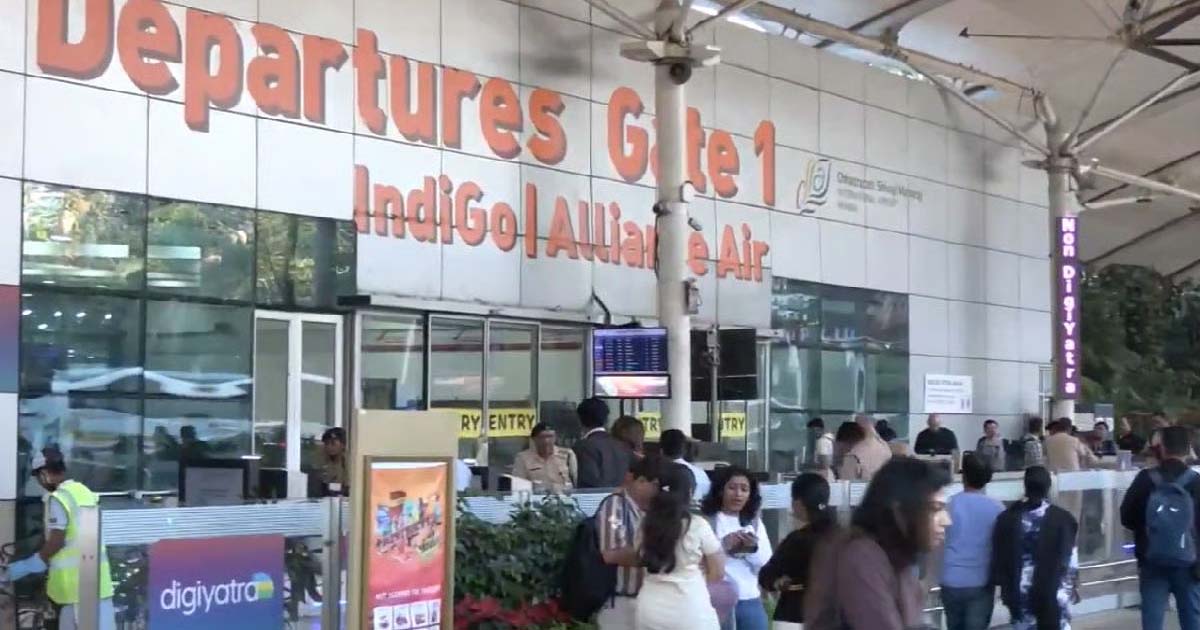National News
Civil servants’ role crucial in achieving Viksit Bharat, says PM Modi on Civil Services Day

New Delhi, April 21: Prime Minister Narendra Modi on Monday addressed the 17th Civil Services Day programme in the national capital, lauding the relentless efforts of India’s civil servants and underlining their key role in realising the dream of a ‘Viksit Bharat.’
Speaking at Vigyan Bhawan, PM Modi paid rich tributes to Sardar Vallabhbhai Patel, recalling his iconic 1947 address in which he called civil servants the “steel frame” of India.
“This Civil Services Day is special for several reasons. We are celebrating 75 years of our Constitution and the 150th birth anniversary of Sardar Vallabhbhai Patel. On April 21, 1947, he had described you (civil servants) as the steel frame of India,” he said.
Reflecting on Patel’s vision, the Prime Minister said, “He laid out the ideals of a civil servant — one who serves the nation with honesty, discipline, democratic spirit, and dedication. These lessons of Sardar Patel become even more relevant as we move towards the resolution of Viksit Bharat.”
PM Modi said that achieving the dream of a Viksit Bharat will require every arm of progress to work in synergy.
“Our bureaucracy and policy-making cannot function with outdated methods when the world is evolving so quickly. Our young generation is growing up with rapid technological changes, new gadgets every two to three years. We must match this pace,” he stated.
Highlighting areas where India must grow — from clean energy to sports and space — the Prime Minister stressed, “Everyone is looking towards you (civil servants). You have a big responsibility to help India become the world’s third-largest economy. We must work together to ensure this goal is achieved.”
This year’s theme for Civil Services Day is ‘Holistic Development of India,’ which the Prime Minister explained as “no village left behind, no family left behind.”
He also presented the Prime Minister’s Awards for Excellence in Public Administration, recognising top-performing officials behind initiatives like PM Vishwakarma, Poshan Tracker, Siksha Setu Axom, and Sugamya Pustakalaya.
“Good governance is not defined by the number of schemes but by the impact it creates on the ground,” he said. Citing examples, he mentioned districts where solar power and improved attendance systems have shown positive results and praised the efforts of public administrators across the country.
He added that in the last decade, India has moved beyond incremental progress to transformative change.
“Today, India’s governance model focuses on next-generation reforms. Through technology and innovation, we’re bridging the gap between government and citizens. These changes are visible not only in urban and rural areas but also in remote corners of the country,” he said.
PM Modi cited Bhagalpur in Bihar, where the registration of pregnant women in Jagdishpur block rose from 25 per cent to over 90 per cent. In Marwah block of Jammu and Kashmir, institutional deliveries increased from 30 per cent to 100 per cent, reflecting improved healthcare access.
Touching upon India’s global leadership, the Prime Minister highlighted the scale of its G20 presidency. “For the first time in G20 history, more than 200 meetings took place across over 60 cities, creating a wide and inclusive footprint. This is the holistic approach of today’s India,” he said, adding, “India is not just participating — India is leading.”
He noted that while many now talk about government efficiency, India is already ahead of other countries by a decade. “We have eliminated delays and are creating new processes. Over 40,000 compliances have been removed to boost ease of doing business,” he said.
The Prime Minister recalled early opposition to reforms, including compliance reduction and decriminalisation of business errors.
He said that the foundation laid over the past decade has greatly strengthened the path towards Viksit Bharat 2047.
“We cannot evaluate our work or performance by comparing it to previous governments…We must set our own benchmarks. We need to measure how far we still are from the goal of a ‘Viksit Bharat by 2047’. The time for tallying up what we have achieved so far is over.
“India is now the most populous country in the world. Ensuring saturation of basic facilities should be our top priority,” the Prime Minister added.
“In the last ten years, we built 4 crore (40 million) permanent houses for the poor, but now we have a target of building 3 crore more. We have provided tap water connections to 12 crore homes in 5–6 years. Now, we must ensure every household has access to tap water as soon as possible. In ten years, we have built over 11 crore toilets for the poor. Now, we need to quickly achieve new targets related to waste management,” he mentioned.
He also launched two e-books — Holistic Development of Districts and Select Innovations — and honoured top-performing districts in schemes like Ayushman Bharat Yojana, PM Vishwakarma Yojana, Har Ghar Jal, and PM Awas Yojana.
Awarded districts included Rajkot in Gujarat, Gomti in Tripura, Tinsukia in Assam, Kupwara in Jammu and Kashmir, and Koraput in Odisha.
Blocks recognised under the Aspirational Block Programme included Gamharia (Jharkhand), Parappa (Kerala), Narnoor (Telangana), Ganganagar (Tripura), and Rama (Madhya Pradesh).
National News
Jawaharlal Nehru limited Vande Mataram to two stanzas: Amit Shah

New Delhi, Dec 9: Union Home Minister Amit Shah on Tuesday launched a scathing attack on the opposition for questioning the need for the discussion on Vande Mataram to mark the 150 years of its formation and mentioned that the act of “avoiding discussion is not new”.
Speaking in the Rajya Sabha during the discussion to mark 150 years of Vande Mataram, HM Shah said, “Yesterday, many Congress members were questioning the need for the discussion on Vande Mataram and were calling it a political strategy and a way of diverting from the issues. No one is scared of discussions on the country’s issues; we are not the ones who boycott the Parliamentary sessions. If someone wants to discuss, they need to stop boycotting. All discussions will take place then; we are not scared of anything; we are not trying to hide anything. We are ready for debate on any issue.”
Stressing that the discussion is important because the country is marking the 150th anniversary of the composition of Vande Mataram, he said, “People also need to know that avoiding discussions on Vande Mataram is not new. We had not achieved Independence when Vande Mataram completed 50 years. When the golden jubilee of Vande Mataram was due in 1937, Jawaharlal Nehru reduced it into two pieces and limited the national song to two stanzas.”
He further asserted that when Vande Mataram was “limited” after it completed 50 years, that is when appeasement started.
“That appeasement led to the partition of the nation. If Congress had not divided Vande Mataram for its appeasement politics, the country would not have been divided into two. When Vande Mataram completed 100 years, everyone was awaiting the celebrations, but an Emergency was imposed. No one could glorify and raise the ‘Vande Mataram’ slogans, as everyone was imprisoned. Indira Gandhi imprisoned those who raised the slogan of Vande Mataram,” he said.
Referring to the discussions on Vande Mataram held in the Lok Sabha on Monday, the Home Minister noted that both members of the Gandhi family (Rahul Gandhi and Priyanka Gandhi Vadra) were absent from the House.
“Right from Jawaharlal Nehru to the current leadership, Congress continues to oppose Vande Mataram,” he added.
Slamming the Opposition, he said, “Some members raised questions in the Lok Sabha yesterday, asking why there is a need for the discussions on Vande Mataram. The need for discussion on Vande Mataram, the need for dedication towards Vande Mataram, was important back then; it is needed now, and it will always be significant for the formation of great India, which we have envisioned for 2047.”
He further called out the Opposition for linking the national song to the upcoming West Bengal Assembly elections and said that “Vande Mataram is not limited to Bengal”..
“Some people think that because elections are approaching in Bengal, that is why Vande Mataram is being discussed; they want to diminish the glory of Vande Mataram by linking it to the Bengal elections,” he said.
“It is true that the composer of Vande Mataram, Bankim Babu, was from Bengal, the Anand Matth had its origin in Bengal, but Vande Mataram was not limited to Bengal or the country where it was composed. Everywhere in the world where our freedom fighters used to meet, they sang it. Today also, when our soldier at the border, or a policeman guarding the country from inside, sacrifices his life for the country, Vande Mataram is the only slogan he says as his last words.”
National News
Maha govt receives 719 complaints over alleged use of fake disability certificates

Nagpur, Dec 9: The Maharashtra government has received complaints against 719 government employees for allegedly using fake disability certificates to avail benefits under various welfare schemes, Divyang Welfare Minister Atul Save informed the Assembly on Tuesday.
Minister Save said the verification of disability certificates has been made mandatory following directives from the central government as well as the state Divyang Welfare Department.
He assured that strict action would be taken wherever irregularities are detected. The Minister was responding to a question raised by NCP (SP) MLA Bapu Pathare in the Maharashtra Legislative Assembly.
Under government rules, any employee found using a fake certificate or possessing a certificate showing disability below 40 per cent will face action under Section 11 of the Rights of Persons with Disabilities Act, 2016, in addition to disciplinary proceedings.
A government resolution issued on October 9, 2025, had directed all departments to complete verification of disability certificates and submit detailed reports within three months, by January 8, 2026.
“So far, complaints related to fake UDID (Unique Disability ID) certificates have been received from 719 employees, and the concerned departments have been instructed to verify these cases and initiate action as per rules,” Minister Save said.
Only individuals with benchmark disabilities of 40 per cent or above are eligible for benefits such as reservation in government jobs, promotions and other government schemes, he added.
The Minister also noted that the government recently issued Standard Operating Procedures (SOPs) aimed at strengthening protections for Divyang (differently-abled) persons against exploitation, abuse and violence.
The SOPs empower District and Sub-Divisional Magistrates to act swiftly to ensure immediate and effective intervention in such cases, in line with the Rights of Persons with Disabilities Act, 2016.
Business
IndiGo Crisis Day 8: Mumbai Hit Hard As Flight Chaos Enters Day 8; Over 30 Cancellations Snarl City’s Air Travel

Mumbai: air travel operations remained disrupted on Tuesday as IndiGo’s nationwide aviation crisis stretched into its eighth consecutive day, causing large-scale cancellations and commuter chaos across the country. But Mumbai, one of IndiGo’s busiest and most critical hubs, continued to bear a brunt of the meltdown, with passengers facing uncertain schedules and repeated last-minute cancellations.
By 9:30 am, Chhatrapati Shivaji Maharaj International Airport had already logged 31 IndiGo cancellations, including 14 inbound flights and 17 outbound departures. Long queues, anxious passengers and repeated rescheduling announcements dominated Terminal 2 through the morning peak hours, leaving thousands scrambling to adjust their plans.
Across India, more than 200 IndiGo flights were cancelled today. Bengaluru topped the list with 121 cancellations, followed by Hyderabad (58), Chennai (41) and Kerala with four. But for Mumbai passengers, many of whom rely on IndiGo for frequent business and leisure travel, the interruptions continued to be especially disruptive.
The turmoil, which began last Tuesday, has snowballed into a full-blown operational crisis. Over 4,500 flights have been cancelled between last week and Monday. Even though IndiGo claimed on Sunday that operations were ‘stabilising,’ the airline saw over 500 fresh cancellations on Monday alone, leaving passengers stranded overnight at multiple airports, including Mumbai.
The root of IndiGo’s meltdown has been linked to the airline’s inability to implement the second phase of India’s updated Flight Duty Time Limitations (FDTL), which came into effect in November. The revised norms, aimed at cutting pilot fatigue and extending rest periods, required IndiGo to restructure crew rosters. However, the airline has reportedly been struggling with a pilot shortage, leading to a mismatch between the new regulations and its available manpower.
To reduce pressure on airlines and mitigate the ongoing disruption, aviation regulator DGCA temporarily relaxed certain night-duty and weekly rest requirements for pilots. This relaxation is expected to help airlines stabilise operations through emergency rostering flexibility.
Civil Aviation Minister Ram Mohan Naidu told Parliament that IndiGo did not raise any concerns during a crucial meeting on December 1, just a day before the cancellations spiralled. He attributed the chaos to the airline’s internal system rather than regulatory pressure.
The government has now decided to sharply cut IndiGo’s winter schedule. The airline, which operates 2,200 flights a day and commands nearly 60 per cent of the domestic market, will see its schedule curtailed, with several routes handed to other carriers to prevent further passenger inconvenience.
-

 Crime3 years ago
Crime3 years agoClass 10 student jumps to death in Jaipur
-

 Maharashtra1 year ago
Maharashtra1 year agoMumbai Local Train Update: Central Railway’s New Timetable Comes Into Effect; Check Full List Of Revised Timings & Stations
-

 Maharashtra1 year ago
Maharashtra1 year agoMumbai To Go Toll-Free Tonight! Maharashtra Govt Announces Complete Toll Waiver For Light Motor Vehicles At All 5 Entry Points Of City
-

 Maharashtra1 year ago
Maharashtra1 year agoFalse photo of Imtiaz Jaleel’s rally, exposing the fooling conspiracy
-

 National News1 year ago
National News1 year agoMinistry of Railways rolls out Special Drive 4.0 with focus on digitisation, cleanliness, inclusiveness and grievance redressal
-

 Maharashtra1 year ago
Maharashtra1 year agoMaharashtra Elections 2024: Mumbai Metro & BEST Services Extended Till Midnight On Voting Day
-

 National News1 year ago
National News1 year agoJ&K: 4 Jawans Killed, 28 Injured After Bus Carrying BSF Personnel For Poll Duty Falls Into Gorge In Budgam; Terrifying Visuals Surface
-

 Crime1 year ago
Crime1 year agoBaba Siddique Murder: Mumbai Police Unable To Get Lawrence Bishnoi Custody Due To Home Ministry Order, Says Report












